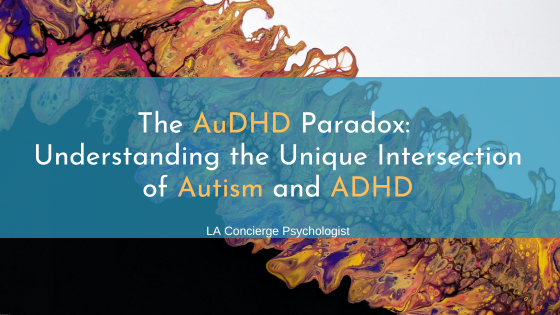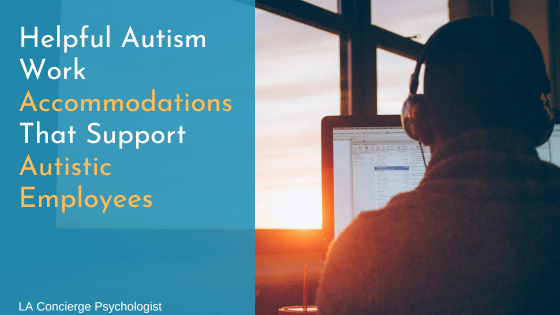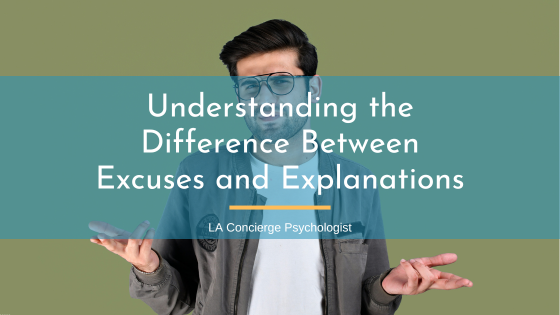Cognitive flexibility plays a crucial role in mental health and overall life satisfaction. This is the mind’s ability to adapt thinking strategies, consider new perspectives, and shift between concepts. For many people experiencing depression, anxiety, addiction, or other mental health challenges, rigid thinking patterns can become a significant barrier to growth and healing.
Psychedelic-assisted therapy has emerged as a promising approach to enhance cognitive flexibility, offering individuals new ways to break free from entrenched thought patterns and develop more adaptive ways of thinking[1].
In this article, we’ll explore what cognitive flexibility is and how psychedelic treatments can help promote neuroplasticity in the brain.
Understanding Cognitive Flexibility
Cognitive flexibility encompasses many mental abilities that we often take for granted:
- Shifting perspective and considering alternative viewpoints
- Adapting to new situations and changing circumstances
- Moving between different concepts or tasks smoothly
- Thinking “outside the box” when problem-solving
- Tolerating ambiguity and uncertainty
- Updating beliefs based on new information
However, when cognitive flexibility diminishes, it can impact our day-to-day lives. People may experience:
- “Black and white” thinking with few shades of gray
- Difficulty adapting to change or unexpected situations
- Rumination on negative thoughts
- Adherence to ineffective strategies despite poor results
- Resistance to considering alternative explanations
- Getting “stuck” in particular emotional states or thought patterns
These rigid thinking patterns are common in many mental health struggles such as depression, anxiety disorders, addiction, obsessive-compulsive disorder, and eating disorders. Often, people recognize their thought patterns are unhelpful but feel unable to shift out of them. This can be a frustrating and distressing experience that can deepen suffering.
How Psilocybin Promotes Cognitive Flexibility
Psychedelic medicines offer unique mechanisms to enhance cognitive flexibility at both the neurobiological and psychological levels:
1. Disrupting the Default Mode Network Function
The default mode network (DMN) is a collection of brain regions that coordinate activity when the mind is at rest, often described as the neurobiological seat of the “ego” or sense of self. Research has shown that psychedelics temporarily reduce activity and connectivity in the DMN.
This disruption to DMN functioning has profound implications for cognitive flexibility. The DMN helps maintain our sense of narrative identity and habitual thinking patterns. When its activity decreases during psychedelic experiences, individuals often report:
- A breakdown of usual thought patterns
- Increased ability to see beyond personal biases
- Novel perspectives on long-standing issues
- Dissolution of boundaries between concepts that normally seem distinct
- A sense of seeing oneself and one’s problems “from the outside”
This temporary shift enables individuals to step outside their usual mental frameworks and consider alternatives that were previously inaccessible or dismissed.
2. Enhancing Neural Connectivity
While decreasing activity in some brain networks, psychedelics simultaneously increase connectivity between brain regions that don’t typically communicate with each other. This creates what neuroscientists call an “entropic brain state”, a less predictable pattern of neural activity[2].
This entropic state allows for new connections between thoughts, memories, emotions, and sensory experiences. Ideas that seemed unrelated can suddenly connect in meaningful ways, providing insights and novel solutions to persistent problems. This increased neural cross-talk forms the biological basis for the enhanced associative thinking often reported during psychedelic experiences.
3. Promoting Neuroplasticity
Perhaps most importantly for lasting change, psychedelics promote neuroplasticity— the brain’s ability to reorganize itself by forming new neural connections. Research indicates that psychedelics increase levels of brain-derived neurotrophic factor (BDNF)[3] and stimulate the growth of new neural connections.
This neuroplasticity effect continues beyond the acute psychedelic experience, creating a window of opportunity where new thinking patterns can be established and reinforced. This neurobiological change supports the psychological shifts observed in therapy, helping new cognitive patterns become established rather than reverting to old default modes.
The Therapeutic Framework of Psychedelic Treatment
While psychedelics create the neurobiological conditions for enhanced cognitive flexibility, the therapeutic framework around their use is essential for translating these temporary states into lasting change:
Preparation Phase
Before the psychedelic session, we will take time to:
- Identify rigid thinking patterns that contribute to distress
- Develop intentions around cognitive patterns they wish to shift
- Create a foundation of trust and safety for the psychedelic experience
The Guided Session
During the psychedelic experience, you can expect:
- A safe, supportive environment that allows for deep exploration
- Minimal but supportive guidance, allowing the client’s enhanced cognitive flexibility to lead the way
- Support for staying with difficult emotional or cognitive material rather than avoiding it
- Gentle reminders of intentions when appropriate
After your therapy, there can be many new shifts with common results including:
- Seeing problems from entirely new angles
- Recognizing patterns in their thinking they couldn’t previously access
- Experiencing emotional content while maintaining a new perspective on it
- Finding metaphorical or symbolic understanding of their challenges
- Connecting seemingly disparate aspects of their lives into meaningful wholes
Integration Phase
After the psychedelic experience, the integration phase is crucial for translating new insights into lasting cognitive change. We will work together to:
- Processing and making meaning of the experience
- Identifying specific cognitive shifts that occurred during the session
- Developing practices to maintain these new patterns of thinking
- Applying new perspectives to daily challenges
- Reinforcing neural pathways established during the psychedelic state
Clinical Applications for Enhanced Cognitive Flexibility
Research and clinical observations have highlighted several areas where psychedelic-enhanced cognitive flexibility shows particular promise and can help people suffering from a number of conditions.
Depression
Depression often involves rigid negative thinking about oneself, others, and the future. Psychedelic therapy can help individuals step outside these entrenched patterns and consider more balanced and compassionate perspectives. Research with psilocybin has shown significant reductions in depression scores[4], with many participants reporting a fundamental shift in how they view themselves and their lives.
Addiction
Addiction involves compulsive patterns of behavior despite negative consequences—a classic example of cognitive inflexibility. Psychedelic therapy can help individuals recognize the automaticity of their addictive behaviors and consider alternative responses. Studies with psilocybin for alcohol and tobacco dependence have shown promising results[5], with participants reporting new perspectives on their relationship with substances.
Obsessive-Compulsive Thinking
OCD and related conditions involve rigid, repetitive thought patterns and behaviors. The enhanced cognitive flexibility from psychedelic therapy can help individuals step back from these patterns and develop more adaptive responses. Early research with psilocybin for OCD has shown potential for reducing symptoms by helping patients gain perspective on their obsessive thoughts.
End-of-Life Anxiety
Facing mortality often brings existential rigidity and fear. Psychedelic therapy has shown a remarkable ability to help individuals develop new perspectives on death and dying. Studies have demonstrated reduced anxiety and increased acceptance among patients with life-threatening illnesses[6].
Creative Problem-Solving
Beyond clinical applications, enhanced cognitive flexibility can benefit anyone facing complex challenges requiring innovative thinking. Historical research and anecdotal reports suggest that psychedelic experiences can lead to creative breakthroughs by allowing individuals to approach problems from entirely new angles.
Considerations for Psilocybin Therapy
While psychedelic therapy offers significant benefits for cognitive flexibility, some important things to consider include:
- Not everyone is a suitable candidate; individuals with certain psychiatric conditions or family histories may face increased risks (e.g., schizophrenia, bipolar disorder) and benefit from another type of therapy
- The importance of proper screening, preparation, and integration
- The need for trained, experienced guides or therapists
- The recognition that psychedelic experiences can sometimes be challenging or disorienting
As research continues to demonstrate the benefits of psychedelic therapy for cognitive flexibility, several developments are on the horizon, including expanded clinical applications for conditions characterized by rigid thinking and an integration with other therapeutic modalities that enhance cognitive flexibility.
Psychedelic-Assisted Therapy Offers a Unique and Powerful Approach to Enhancing Cognitive Flexibility
By temporarily disrupting entrenched neural networks and promoting new connections, these medicines create opportunities for individuals to break free from rigid thinking patterns that maintain suffering.
When conducted within a proper therapeutic framework, psychedelic experiences can help individuals develop more flexible, adaptive ways of thinking that persist long after the acute effects of the medicine have faded. This enhanced cognitive flexibility allows for new perspectives on persistent problems, more creative approaches to life challenges, and greater resilience in the face of change.
For those struggling with mental health conditions characterized by rigid thinking, or simply seeking to enhance their capacity for creative and flexible thought, psychedelic-assisted therapy represents a promising pathway, not as a miracle cure, but as a catalyst for meaningful cognitive change when combined with intentional therapeutic work.
As research evolves and access expands, this approach has the potential to help many individuals develop the cognitive flexibility needed to navigate life’s complexities with greater ease and build more fulfilling, adaptable ways of being in the world.
It’s Important to Work with a Professional Therapist if You’re Considering Psychedelic Assisted Therapy
Professional support offers crucial benefits that self-administration cannot match. This includes proper safety screening, expert guidance through challenging moments, and help processing and integrating insights. Dr. Lee is here to help. Feel free to email her for more information or to schedule an appointment.



